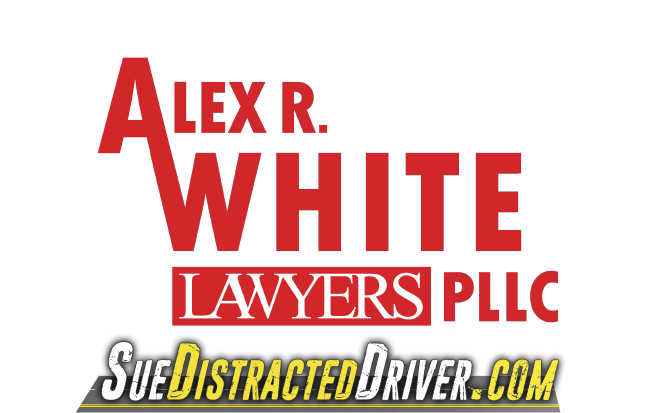AUTOMOBILE ACCIDENT
Injured in a car wreck? Hire Alex R. White, PLLC.
“Car wrecks can cause terrible short term conditions with acute pain and suffering -or worse: life altering injuries and death. Kentucky car wreck law is complicated and insurance companies happily prey on the ignorance of the uninformed. We outwork and out think the insurance companies to maximize the potential of our client's personal injury claims after a car wreck.”
Locally owned and operated
Full team to help ensure your case goes smoothly
English and Spanish
Willing to fight in litigation
No fee unless we recover for you


Recognizing Whiplash (and What to Do About It)
Whiplash is a poorly understood injury, thanks to its use in pop culture as a sitcom trope. The reality, though, isn’t the least bit funny; a whiplash injury can lead to severe pain, dizziness, numbness, and even difficulty concentrating or sleeping, according to WebMD.
“Whiplash is caused by an abrupt backward and/or forward jerking motion of the head, often as a result of a car accident,” the site says.
Many whiplash sufferers do not begin experiencing symptoms until up to 24 hours after the initial trauma, lending to American culture’s general suspicion around the ailment. But the injury is very real. Symptoms include:
Headache
Neck Pain and Stiffness
Pain in the Shoulder or Between the Shoulder Blades
Low Back Pain, Pain or Numbness in the Arms or Hands
Dizziness
Difficulty Concentrating or Remembering
Irritability
Sleep Disturbances and Fatigue
This wide range of symptoms can be attributed to the variety of different body parts that whiplash can effect. The same type of injury can affect the intervertebral joints (located between vertebrae), discs, and ligaments, cervical muscles, and nerve roots depending on how the injury is sustained.
If you suspect you have whiplash, you should see a doctor immediately, especially in the event of a car accident from which you expect to receive damages.While bones are rarely affected — ruling out the usefulness of x-rays — CT scans or MRIs can be used to diagnose damage to soft tissues, like discs and muscles, and can both lead to effective treatment and protect your interests in a court of law.
Once you have sought medical attention, it’s time to talk to your lawyer at AR White Law about whether you are eligible for compensation for your injuries. Alex has recovered over $1,000,000.00 in damages for personal injury clients thanks to his in-depth understanding of soft-tissue and whiplash injuries.

Determining Fault & Pure Comparative Fault
The question of “Who is at fault?” in an auto accident it not always cut and dried. The state of Kentucky recognizes this and is one of thirteen states to reflect this fact in its laws through the doctrine of Pure Comparative Fault.
What is Pure Comparative Fault (PCF) and what does it mean for you?
For starters, it means that, in the event of an automobile accident, you may be able to recover damages, even if liability for the incident is in dispute. Yes, even if the accident is partially your fault, you may be able to collect. In PCF, the percentage of damages a party is able to recover is inversely proportional to how much liability they are determined to have for an incident. So if a party is 40% at fault, they can recover 60% of their damages.
For example: Say Bob and Tom are in an accident. It’s nighttime, and Tom is making a left turn at an intersection. He doesn’t see Bob coming from the other direction and pulls out into the intersection, causing Bob to run into him. The reason Tom doesn’t see Bob coming, though, is because Bob does not have his headlights on. In this case, both men are partially at fault.
As a result of the accident, Tom sustains $10,000 worth of injuries. The jury determines that Tom is 51% at fault for the accident. Under PCF, Tom can still recover 49% of his damages, or $4,900.
In Kentucky and the other PCF states, there is real potential to increase your winnings in court, if your lawyer is able to convince the jury to assess your fault at a low percentage.
Alex White is a veteran of Pure Comparative Fault cases with over $1,000,000.00 in recoveries for Personal Injury clients. Let him help you recover the damages you deserve.
The Moment After An Accident: What To Do (and what NOT to do)
Car accidents are disorienting — emotions run high, there may be injured parties to attend to and, with the stress of dealing with the situation at hand, good decision making can get lost in the shuffle. That’s why it’s useful to make a plan and be prepared so that in the event of an accident, you can protect yourself from unnecessary legal trouble.
1. Call AR White Law: Even in the hectic moments immediately after an accident, we are here to help you. We can talk to law enforcement for you, get a claim started off right with your insurance company and protect your interests from the very start.
2. Make sure no one needs medical attention: The first priority after a car accident should be ensuring the health and safety of everyone involved. Assuming you have not injured yourself, take an inventory of the drivers and passengers in the other cars, and confirm with them that they are not hurt.
3. Document what happened: While waiting for the police and any necessary medical professionals to arrive, take some time to photograph the scene on your cell phone camera or other devices. Snap shots of the other drivers’ license plate(s) and anything about the vehicles involved that may help illustrate who was at fault. Take a photo of or write down the information from others’ driver’s licenses. Back these up to your computer when you get home and keep them in your records until everything is settled with insurance and in the eyes of the law.

4. Get a police report: You’ll want a document of both your and the other driver’s statements and any finding of fault. Even if you think the accident was your fault, do not say so to the officer. There is no need to implicate yourself.
5. Talk to witnesses: If there are witnesses, talk to them about what they saw, and take down their name and contact information, plus notes on what they say about the accident. Should there be a dispute over which driver was at fault, you may be glad to have their testimony. You’ll also want to get the name of the responding officer and find out where you can obtain a copy of the police report.
6. Keep good records: Any costs you might suffer as a result of the accident — from medical attention to repairs to a rental car — may qualify you for damages in court. Keep good records so the facts are on your side.
7. Hold your tongue: Even if you believe, in the moments after the accident, that it was your fault, refrain from taking responsibility. Do not talk to your insurance at all until you have consulted your attorney, Alex R. White. Making a statement to the insurance company without counsel could ruin your case, causing blame for the accident to fall on you unfairly, or providing information that could be used against you later in a moment of confusion and distress.
This is an advertisement. Alex White is a lawyer licensed solely in Kentucky. Work may be performed by another Attorney. Offices at 904 Minoma Avenue, Louisville, KY 40217 and 2813 Main Street, Hurricane, WV 25526.
This is an advertisement. Alex White is a lawyer licensed solely in Kentucky. Work may be performed by another Attorney. Offices at 904 Minoma Avenue, Louisville, KY 40217 and 2813 Main Street, Hurricane, WV 25526.


Location
904 Minoma Avenue Louisville, KY 40217

Phone
800.929.4486

Fax
502.585.3559

Alex@arwhitelaw.com
All rights reserved by Alex White. Copyright 2025. Website design by SuBo.


Location
904 Minoma Avenue Louisville, KY 40217

Phone
800.929.4486

Fax
502.585.3559

Alex@arwhitelaw.com
All rights reserved by Alex White. Copyright 2023. Website design by SuBo.
